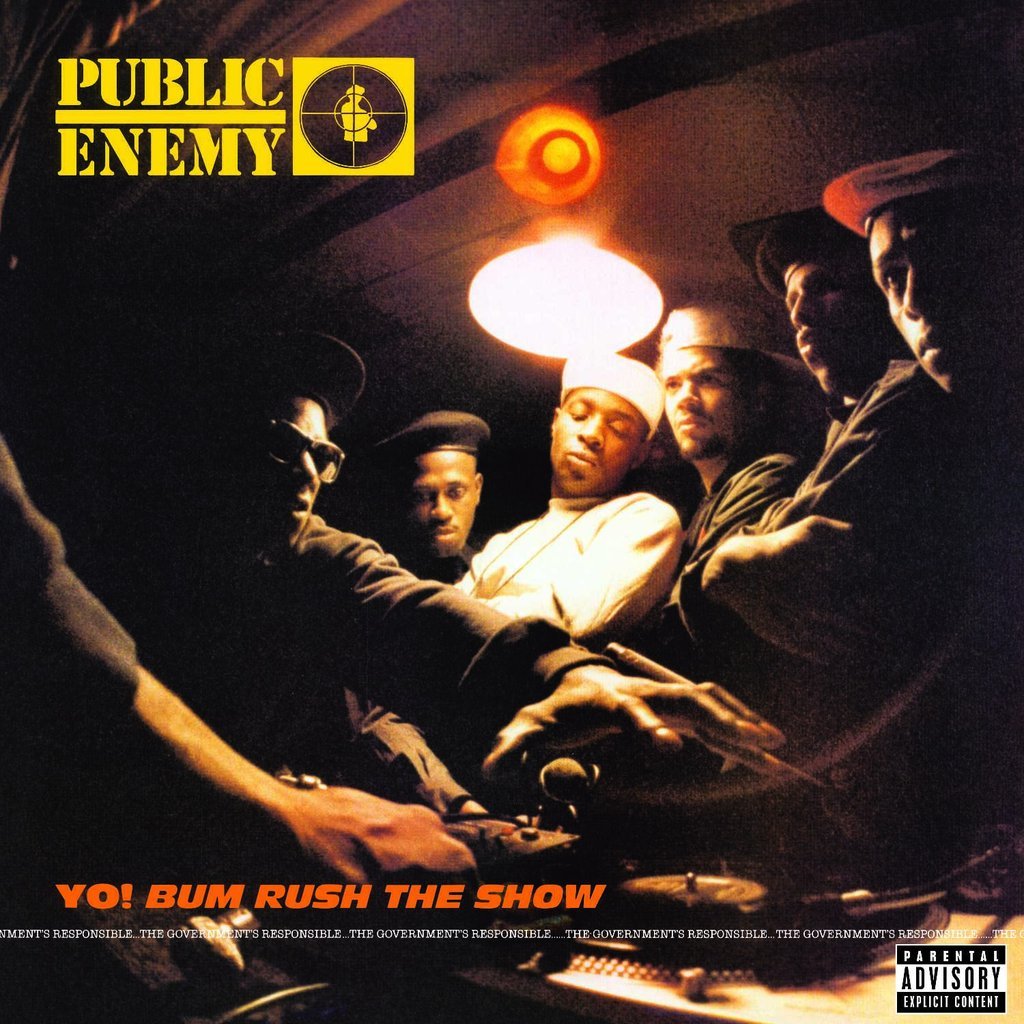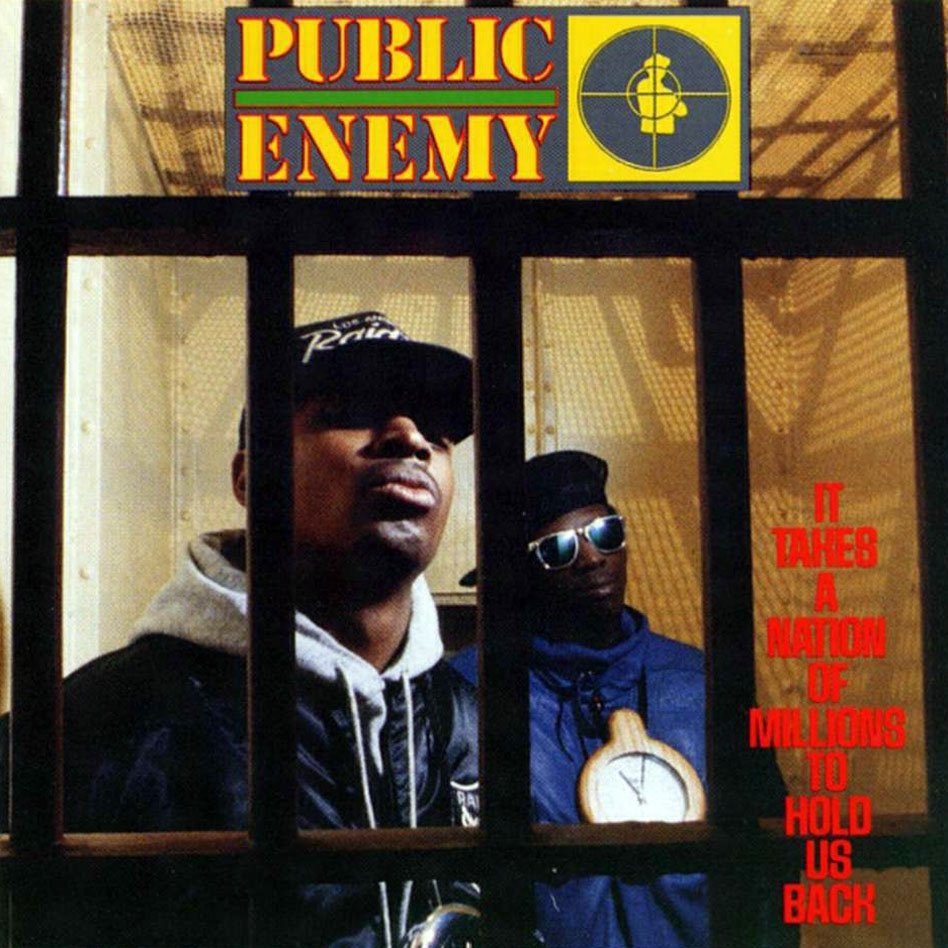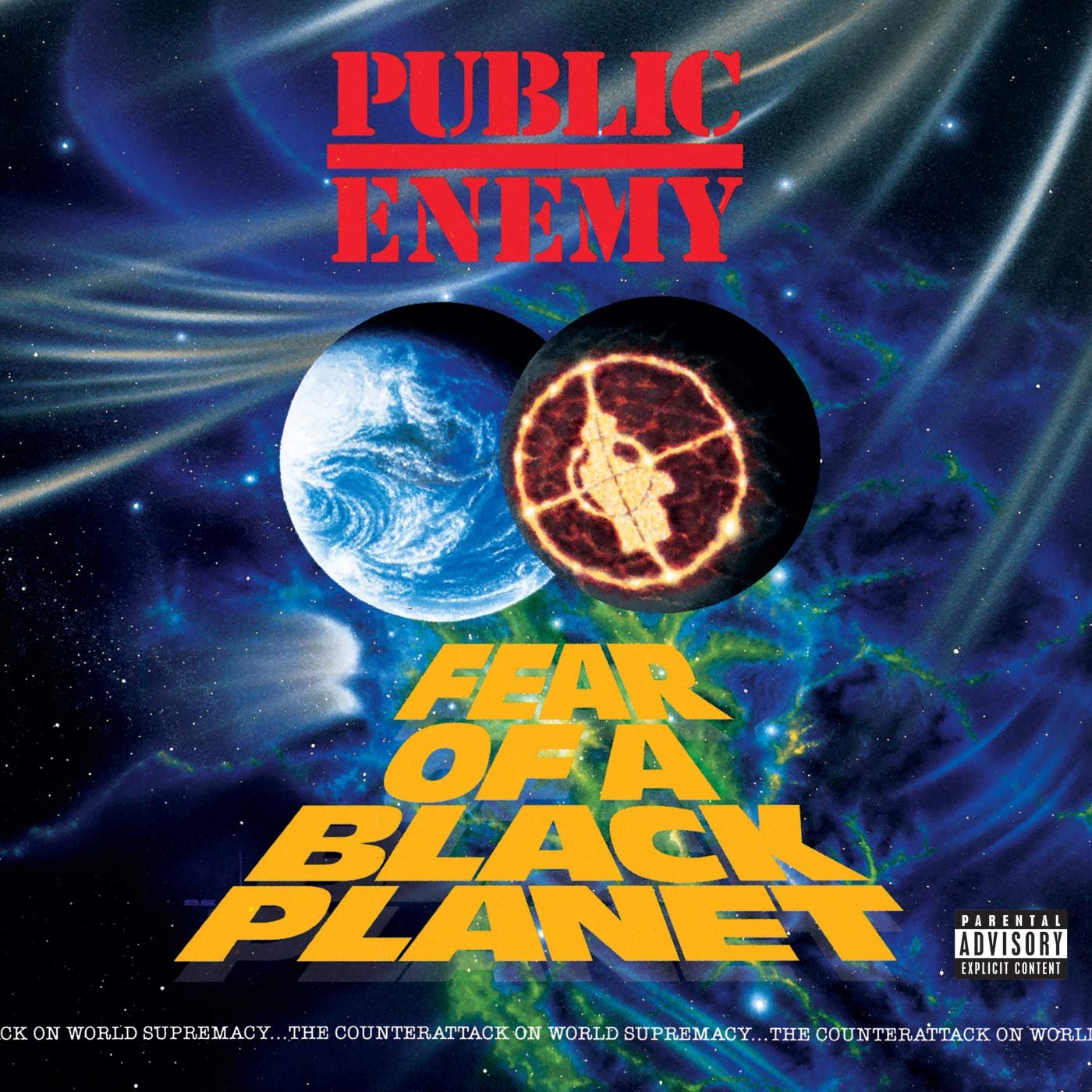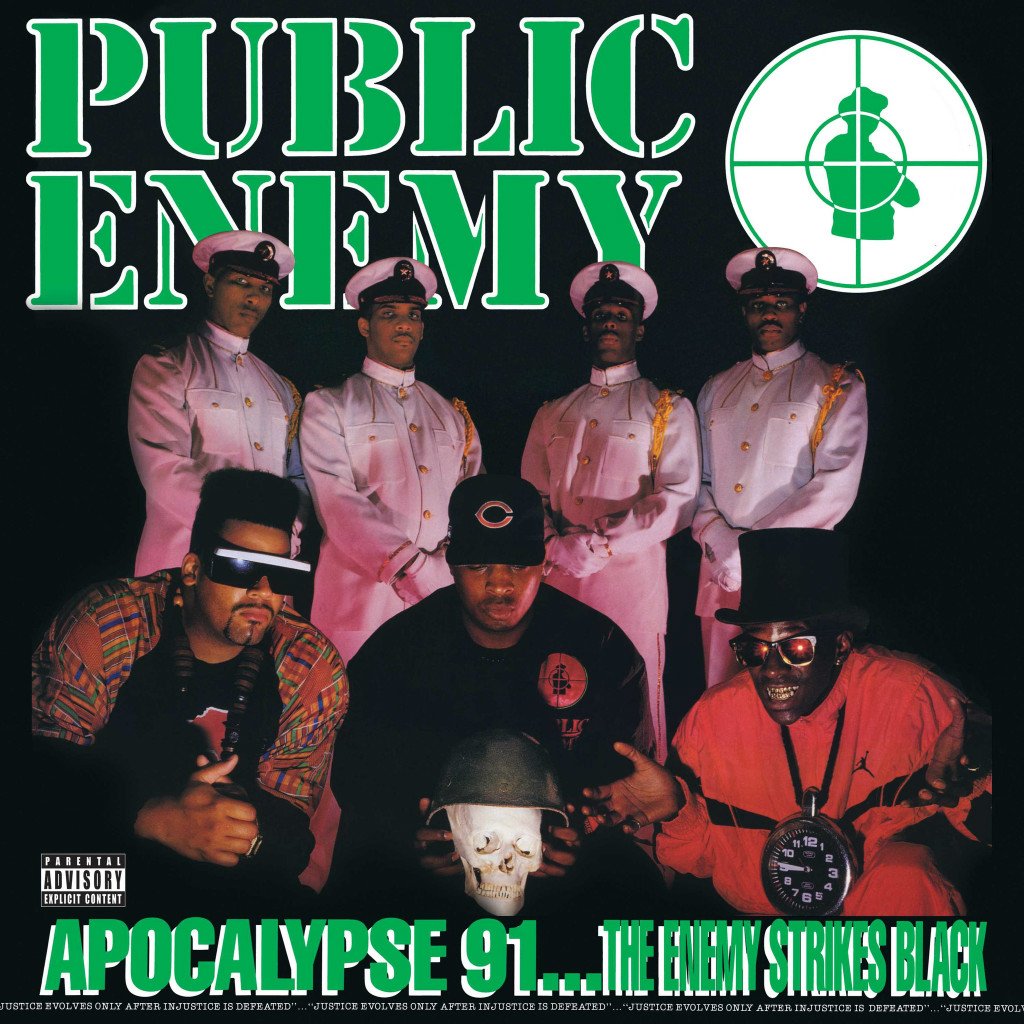Happy 25th Anniversary to Public Enemy’s sixth studio album and the soundtrack to Spike Lee’s He Got Game, originally released April 28, 1998.
Public Enemy’s He Got Game has been somewhat lost to the winds of time. Released 25 years ago, their sixth album was one of two official soundtracks put out in support of Spike Lee’s film about young basketball player Jesus Shuttlesworth (played by NBA star Ray Allen) and his father Ray (played by Denzel Washington). Although the plot of the film followed the incarcerated father trying to convince his son to attend the governor of New York’s alma mater in the hopes of becoming a college basketball star, the subtext of the film was squarely within Public Enemy’s wheelhouse. The film was ostensibly about the commodification of young Black men by billion-dollar institutions.
Far less commonplace in the 1990s, artists recording full soundtracks for films was a leftover of the 1970s, when the Isaac Hayes’ and Curtis Mayfield’s of the world recorded masterful soundtracks to Blaxploitation films. But teaming up with Lee seemed like a natural fit. The omnipresence of P.E.’s “Fight the Power” in Do The Right Thing (1989) had propelled the song’s success and helped turn the group into superstars. Not to mention that He Got Game was a comeback for Public Enemy, whose last album Muse Sick-n-Hour Mess Age (1994) was a hulking, poorly received mess.
And in the case of He Got Game, the group had already touched on the film’s subject matter on their earlier albums. Greatest Misses (1992) featured “Air Hoodlum,” a hard luck tale of an aspiring high school basketball player who’s the toast of the sports industry until he sustains a career ending injury. While that doesn’t directly follow the plot of the film, Chuck D and company were quite familiar with taking the necessary targets to task on the soundtrack.
But the hip-hop landscape in 1998 was much different than it was back in 1987, 1992 or even 1994. Hip-Hop music was considered mainstream rather than revolutionary counterculture, and thus revolutionary groups like Public Enemy were pretty far outside of the image of hip-hop that was presented on daytime radio and MTV.
At the same time, things were starting to sour between Public Enemy and their longtime label Def Jam Records. The group had been with the label since close to its inception and stuck with them through the lean times of the mid 1990s. But toward the end of the decade, Def Jam was spending more resources championing emerging emcees such as DMX and Jay-Z. It wasn’t clear whether a group like Public Enemy had a place at the label anymore.
He Got Game is one of Public Enemy’s angriest and most bitter albums. Due to the confrontational tone that has permeated their music since the beginning, the content of the group’s music has often been grim, but occasionally showed flashes of optimism. But here, Chuck D and crew just sound fed up. Fed up with the government, the record industry, the NBA the NCAA, and the sneaker industry. Most of all, they’re fed up with the corporate system that treats young Black men, be they rappers or basketball players, as products rather than human beings.
While the album isn’t perfect, Public Enemy thankfully didn’t churn out 13 “Fight the Power” clones and call it a day. However, at times the execution falters, largely on the musical end. One factor affecting the final product was the new era of hyper-vigilance in the realm of sample clearances, which invariably hampered the end result. Members of the group’s frequent collaborators The Bomb Squad spoke of attorneys from Disney (the parent company that owned Buena Vista Pictures, who distributed the He Got Game film) observing them closely in the studio to make sure that they didn’t sample stuff that they wouldn’t be able to clear.
Though much of He Got Game is produced by The Bomb Squad, Public Enemy also enlists beatmakers like Abnes “Abnormal” Fubose, Minnesota, and Danny Saber. Furthermore, The Bomb Squad were frequently assisted on the album by D.R. Period, who had previously worked with artists like M.O.P. and Smoothe Da Hustler.
Listen to the Album:
If nothing else, He Got Game starts off on the right foot with “Resurrection.” Chuck D, a.k.a. “The one man Million Man March,” attacks the track with the type of ferocity that he hadn’t possessed in close to a decade. Over dirge-like keyboards and organs, he proclaims, “Ain’t nothing wrong, but wait, fuck another love song / It’s the R&B strangler bringing noise in the Wrangler.” Chuck then targets his own record label, rapping, “Now the pitch, time for a label switch / Thanks I get? I put the roof on top this bitch.” He ends his verses like a thundering Old Testament prophet, stating, “Getting round, I’m the spook that sat by the sound / Fucking with Saddam will bring a new Saigon /Ain’t nothing changed, P.E. we be the same crew.”
He Got Game then stumbles a bit with the title track, probably the best known song from the album. It’s essentially Public Enemy’s version of a radio-friendly song, with the group reinterpreting a chart-topping hit and attempting to put their spin on it. In this case, Public Enemy reached back into the ’60s and re-purposed Buffalo Springfield’s iconic protest anthem “For What It’s Worth.” Chuck utilizes a laid back, lackadaisical delivery to describe the continued crumbling of American society in a corrupt system, but he doesn’t put much conviction behind it. An appearance by Stephen Stills himself, along with the Voices of the Shabach Community Choir of Long Island is overkill.
The group gets back on track soon after. On “Is Your God a Dog?,” Chuck D directs his ire at the music industry for pitting Tupac Shakur and Biggie Smalls against each other. He ponders why the murders remained unsolved (and still do to this day) and notes that the record companies ended up profiting by exploiting their deaths to boost record sales.
Occasionally Public Enemy enlists guest emcees to keep the tone varied. KRS-One makes his first appearance on a Public Enemy album with “Unstoppable,” an eerie vibe and harp-based track produced by Gary G-Whiz. The aforementioned Smoothe Da Hustler lends his talents to “Game Face,” with both him and Chuck delivering over a menacing, James Bond-esque beat. The stripped down and stark “Revelation 33 1/3 Revolutions” is the quietest chaotic track Public Enemy has ever recorded. Chuck D, LuQuantum Leap, and Supernatural all rap over a solid drum track and distant trumpet, all while Flavor Flav ad-libs and scratches by DJ Johnny Juice echo faintly behind the vocals.
P.E. doesn’t really touch on the film’s subject matter until the back half of the album. From there, the album is anchored by the trifecta of “Politics of the Sneaker Pimps,” “What You Need is Jesus,” and “Super Agent.” On “Politics…” Chuck rhymes from the perspective of a high school basketball phenom, eager to play, but wary of the pitfalls that lay ahead of him. Meanwhile, “What You Need…” loosely follows the plotline of He Got Game, complete with a soaring orchestral musical backdrop and gospel-like vocals.
“Super Agent” deals even more directly with the exploitation of Black masculinity to aid multi-billion shoe companies and athletic associations, as Chuck assumes the role of a prized hoop candidate. He likens the NBA draft to a slave auction with lines like, “Run n***a run to the auction block / But you can't pledge allegiance to the block / This buck here, is the right kinda stock / For sale for passin’ the right kinda rock.” He then laments the lack of perceived value for Black lives if the individual can’t make money for someone richer, as he raps, “Can I get a chance if I don’t sing or dance? / Write about romance or wear short pants? / So I rave and rant, and you can't say I can’t / Get my Grants, cold chilling in a b-boy stance.”
Both He Got Game the album and the film were critical successes but commercial disappointments. For Public Enemy, the implication was that while the album’s execution was mostly successful, the wider audience had moved on to more commercial and hedonistic pastures.
Enjoying this article? Click/tap on the album covers to explore more about Public Enemy:
He Got Game served as the end of Public Enemy’s first act. The group did move on from Def Jam afterwards, and embraced their musical independence. They’ve released over a dozen albums over the last quarter-century, either through their own label or through the labels of like-minded artists. In 1999, they became one of the earliest hip-hop adopters of digital distribution with There’s a Poison Going On.
He Got Game is an interesting view into a legendary hip-hop group in transition, and overall it hits a lot more than it misses. Of course, the opinions Public Enemy express here concerning the sports and music industries are not considered radical by any stretch these days. And though the soundtrack doesn’t rank among their best projects, it’s always satisfying to see the group staying well ahead of the curve.
LISTEN:
Editor's note: this anniversary tribute was originally published in 2018 and has since been edited for accuracy and timeliness.





